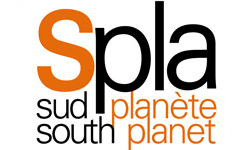Agenda
The fight against impunity, corruption and rule of law in Kenya
Renseignements :
KENYA07/02/2011 > 11/02/2011
Lieu : Alliance française de Nairobi
7 - 11 February 2011 at 6pm Alliance Française Auditoriums ENTRANCE FREE
The Kenya National Dialogue and Reconciliation Agreement that ended the impasse caused by the violence witnessed after the 2007 general elections lists four main agenda items as the guiding principles to restore sustainable peace in Kenya. The main agenda items were to address the crisis, reconcile the communities and prevent future conflict. The fourth agenda (widely referred to as Agenda Four) was meant to examine and propose solutions for the long-standing issues such as, constitutional, legal and institutional reform; tackling poverty and inequality as well as combating regional development imbalances; tackling unemployment particularly among the youth; consolidating national cohesion and unity; undertaking land reform; and addressing transparency, accountability and impunity.
The inclusion of the fourth agenda was informed by the realisation and consensus by both the President and Prime Minister that there was need to address impunity, poverty, the inequitable distribution of resources and (perceptions of) historical injustices among others. Rampant corruption, impunity and disregard for the rule of law in Kenya contributed towards the long-standing issues cited under Agenda Four for example poverty, inequality, regional imbalances, lack of national cohesion, inequitable allocation of resources such as land and land grabbing amongst other historical injustices which led to the post election violence.
Addressing transparency and accountability issues through the development of a national anti-corruption policy, enactment of necessary legislation, systems and capacity enhancements to watchdog and law enforcement institutions form part of the current transitional justice measures being undertaken under Agenda Four reforms.
The forums will address the ongoing constitutional implementation process, as constitutional reforms are a key part of the Agenda Four. Emphasis will be placed on the provisions designed to deal with historical injustices and other issues cited in the National Dialogue and Reconciliation Agreement as well as the chapters on representation (which deals with elections) and chapter 6 on leadership and integrity which deals with ethics and political accountability.
The proposed forums will provide opportunity to reflect upon, caucus and participate in transitional justice and national reconstruction processes in Kenya following Kenya’s post 2007 elections violence. They will also provide impetus for Kenya’s fragile reform processes and provide key stakeholders in Kenya opportunity to meet and share views with a senior representative of the International Criminal Court (ICC).
Using the films "Seeking Peace and Justice”, “The ICC in Africa”, “Togetherness Supreme”, “Living With Corruption: How to Get Ahead in Africa” and ‘Kikulacho", Dunia Moja Trust (DMT) and Transparency International (TI) is embarking on a campaign using the films to raise awareness about the fight against impunity, corruption and enhancing the respect for the rule of law in Kenya.
The forums intend to bring together stakeholders, partners, organizations and other interested individuals to discuss and map a united way forward in the processes of national reconciliation and reconstruction. These groups would also get to understand and appreciate their respective roles and responsibilities in these transitional justice processes.















